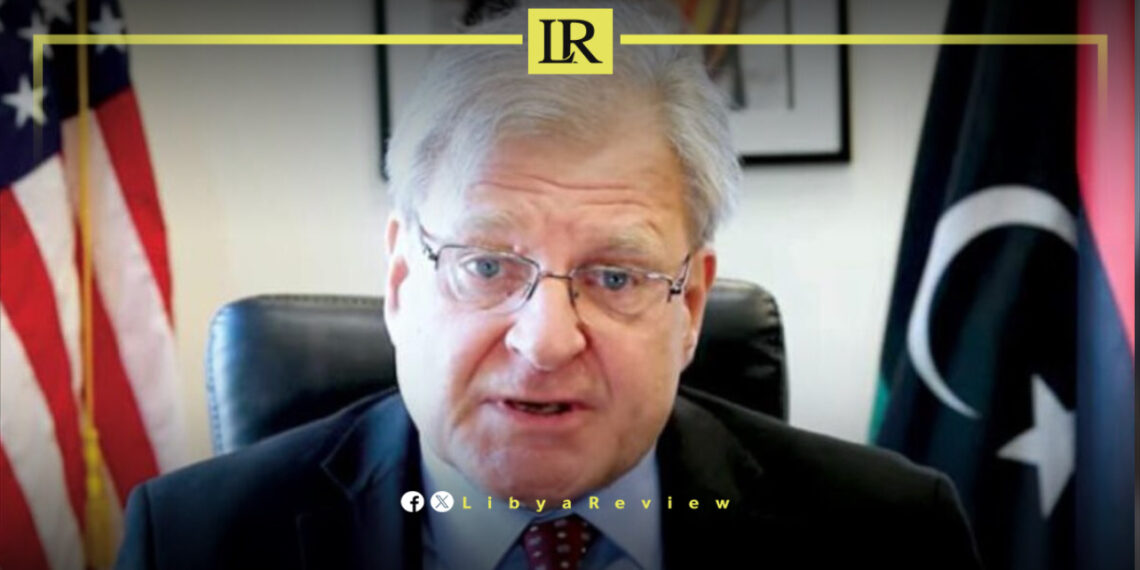U.S. Special Envoy to Libya, Richard Norland, emphasized that national reconciliation is the cornerstone of lasting political stability in Libya, despite the challenges it faces. His statement came in response to the signing of the Reconciliation Charter in Addis Ababa last Friday.
The U.S. Embassy in Libya quoted Norland on Sunday, stating, “We have taken note of the African Union-hosted meeting on February 14 in Addis Ababa regarding Libyan reconciliation. We commend President of the Republic of the Congo, Denis Sassou Nguesso, and the African Union for their continued commitment to Libya’s reconciliation efforts.”
He further added, “While we recognize the ongoing challenges, we applaud all Libyans working towards both local and national reconciliation in service to their homeland.”
African-Led Peace Session for Libya
On Friday, the African Union announced the signing of the Libyan Peace and National Reconciliation Charter in the Ethiopian capital.
The signing session was attended by Congolese President Denis Sassou Nguesso, who chairs the African Union’s High-Level Committee on Libya, along with representatives from the African Union, the European Union, the United Nations, the Arab League, and the Organization of Islamic Cooperation.
Political Figures Absent from the Event
Despite the significance of the event, several prominent Libyan political leaders were notably absent. This absence was criticized by Presidential Council member Moussa Al-Koni, who blamed those who did not attend for “missing Libya’s historic opportunity for reconciliation and unity.” He described the occasion as “a pivotal moment for national peace.”
High Council of State Disputes Charter’s Content
Mohamed Takala, who is currently contesting the leadership of the High Council of State with Khaled Al-Mishri, expressed reservations about the charter’s content. He argued that it “blurs the lines between national reconciliation and political settlement, which must be clearly distinguished to avoid confusion in its implementation.”
Takala also criticized the charter for failing to address key transitional justice mechanisms, such as accountability, reparations, truth-seeking, and legal and institutional reforms. He questioned why the document ignored Libya’s Reconciliation Law No. 29 of 2013, enacted by the General National Congress, describing this omission as “highly questionable.”


